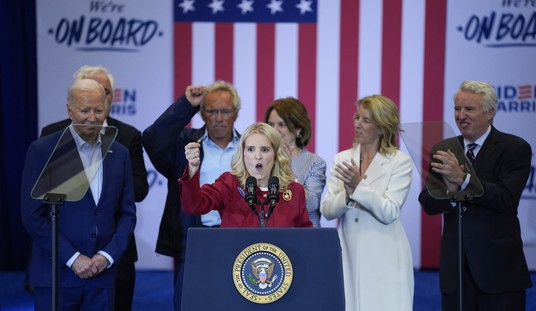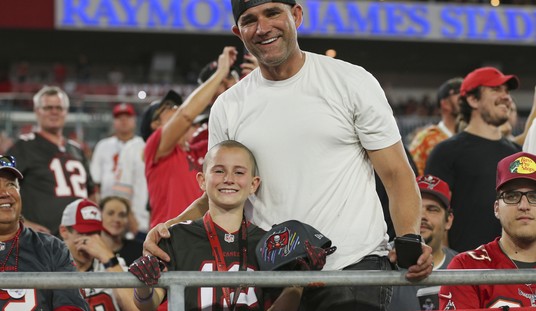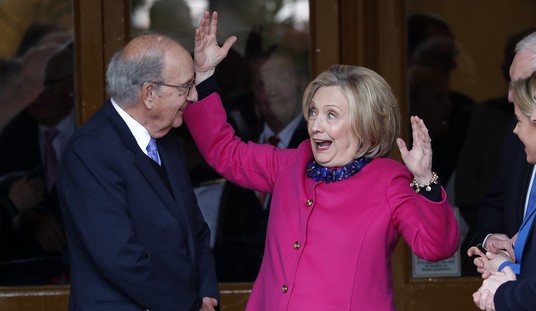Peter A. Diamond, a professor of economics at MIT, has just published a hissy fit in the NY Times titled “When a Nobel Prize isn’t enough.” I won’t link the piece because of the Times’s paywall, so I’ll just tell you what he says.
Diamond wants to be a governor of the Federal Reserve. Barack Obama wants the same thing, having nominated Diamond three times now. He had only a small amount of support from Senate Republicans, mostly from Michael Bennett and Judd Gregg. After being dissed by Richard Shelby, Diamond is now withdrawing is candidacy. (There are currently two open Fed governorships.)
Peter Diamond thinks he should be on the Fed’s board of governors because he won the Nobel Memorial Prize in economics last year, for his work in fundamental market dynamics, particularly in labor markets. He’s not going to get the job, and he thinks the reason why is that Republicans are too stoo-pid to be impressed by his Nobel Prize. In the New York Times, he says quite straightforwardly that you’d think a Nobel Prize would be qualification enough for him to have the job, but that Senate Republicans insist on questioning his candidacy.
Never mind that blind faith in technical expertise over the politically-expressed will of the people is the source of a great many of our nation’s problems. Also never mind that technical accolades aren’t necessarily qualifiers for powerful positions. Should Republicans back Nobelists Paul Krugman or Joe Stiglitz for Fed governorships? Should we back Nobelist Barack Obama for President?
Diamond says, again in so many words, that choosing the leadership of the Fed should not be a politicized process. But what he is doing here is making a post-hoc case for his own candidacy based on a tendentious reading of the Fed’s history and mandates, as well as begging the question relative to his own qualifications.
Ok, let’s get into it.
Peter Diamond is an expert in how labor markets match supply to demand. This turns out to be a sticky and sometimes inefficient process. Well, big surprise. I can see how this would be a revelation to an academic economist, but it’s not news to anyone who is in the trenches, running a business and trying to create jobs. Quite a good deal of the work that macroeconomists do, including Nobel-quality work, amounts to quantifying common sense. The old crack “that’s all very well in practice but it’ll never work in theory” contains more than a grain of truth.
But I’m entirely happy to grant the value of this work. What matters more is that Diamond faults Republicans for failing to recognize what is obvious to him, which is that understanding labor markets is core to making monetary policy. Well, let me pile on and fail to recognize it as well.
The nugget of rigor in Diamond’s piece comes at this point. He has studied the nature of current unemployment and has determined that it’s cyclical rather than structural. Forget about the fact that this is far from proved. What it means in his view is that fixing unemployment is something the Fed can and should do.
And that means in turn that aggressively accommodative policy is currently what is needed to fix unemployment. With this, Peter Diamond has openly violated the Souter Principle, the cardinal sin of aspirants to high government power: he let the cat out of the bag and told everyone what he really wants to do. In this case, he wants to join the Fed’s dovish wing, with continued low interest rates, quantitative easing, and all the rest.
Diamond makes the case that being a labor specialist is just what qualifies him most for a Fed position. I think it’s extremely dangerous to elevate someone who will take this perspective above all else.
Why? Because I think it was a very bad mistake for Congress to add employment stabilization as an explicit part of the Fed’s mandate in 1977. There is room for a labor-market specialist like Diamond in a policy-making position at Treasury, or perhaps in a research position in the St. Louis or New York Fed banks, but not as a policymaker on the Fed board.
The reason that Congress made this critical error in 1977 is because that was an era of stagflation (which may also be true today). Congress and the Administration were struggling with the fact that they had no clue how to effect countercyclical policy under such circumstances, so Congress decided to “do something” about the problem: they passed a law making it the Fed’s problem.
Subsequent Fed leaders have taken the “dual mandate” very seriously (it’s the law, after all), with sustained deleterious effects on the conduct of monetary policy.
The Fed has two essential jobs: first, and foremost, to be a lender of last resort in times of crisis. Second, to ensure a stable currency for the United States. It has enough to do just with these two tasks.
During the New Deal and subsequently, a third mandate was added to the Fed: to regulate the banking system. With the advent of deposit insurance, the practice of banking suddenly needed strong, central regulation. (You can’t have deposit insurance and laissez-faire banking. They mix about as well as oil and water.) The need for banking regulation is not controversial, but it’s not necessarily the case that the Fed is the best entity for the job. (I won’t take up that argument here.)
And as I mentioned, the fourth Fed mandate (to maintain monetary aggregates at a level consistent with full employment) was added in the late Seventies.
Unfortunately, Diamond glances tangentially off these points of history as well. In swiping at Republicans, he says that the process of choosing the Fed’s leaders should not be politicized, because the Fed’s independence must be protected. And why must it be? As Diamond tells it, because political independence is needed to maintain sound money, and also to effectively regulate banking and foster high employment.
I agree 1000% with the first of these, but I disagree with the second and the third. The very LAST thing we need in the United States is to realize the technocrat’s dream of politically unaccountable regulators making economic policy, on top of the monetary policy which they SHOULD be making. Senator Shelby is right on target here.
And let’s talk about Mr. Diamond’s qualifications in regard to actual monetary management, including what Sen. Shelby referred to as a lack of experience in crisis management. To this point, Diamond is arrogantly dismissive. Perhaps he thinks of Sen. Shelby as an ignorant partisan rather than as a duly-elected representative of the people of Alabama.
But Shelby is right. The two top Fed positions are currently held by policy doves (Bernanke and Yellen), and their management of countercyclical policy has been indifferent at best. We still have over 9% unemployment. Macro policy in times of non-crisis should simply not be the Fed’s job. We don’t need another dove at the Fed, and particularly not another dove who is willing to throw around the weight of his Nobel Prize.
But Ben Bernanke is absolutely the right man to be leading the Fed at this moment. An academic economist himself (though not a Nobelist), he was plucked out from Princeton by President Bush, and put into the hottest seat in the world just before it got hot. Bernanke’s specialization is not labor markets, but rather the credit and financial dynamics of the Great Depression. When the 2007-08 crisis hit, he was perhaps the only person in the world with the knowledge and the insight to do the right things.
And Bernanke did so many of the right things, against so much current prevailing wisdom, that he deserves to go down in history as the man who kept the financial crisis from being a lot worse than it was. Now of course, Barack Obama will tell you that he, not Bernanke, deserves this credit. But that ignores a critical point that goes right to the Peter Diamond case.
The 2007-08 crisis was a financial crisis that eventually devolved into an economic disaster. The specific channels through which this happened is still unclear, and may not be resolved for years to come. (Bernanke himself was among those who elucidated how it happened in the early Thirties, but not until fifty years later.) Bernanke’s bold crisis management alleviated the financial mess, although the economic aftermath is still with us.
It became blindingly clear in the fall of 2008 that the Administration and the Congress were institutionally incapable of handling a fast-moving global crisis. Only the Fed, with its relative freedom of action and the happy accident of effective leadership, could manage the situation.
THE SAME WILL BE TRUE IN THE NEXT CRISIS. Being ready for it is, and should be, the true core objective of the Fed. A guy like Peter Diamond may be eminently qualified for his post at MIT, and even perhaps for the op-ed page of the New York Times. But he doesn’t belong at the Fed.












Join the conversation as a VIP Member